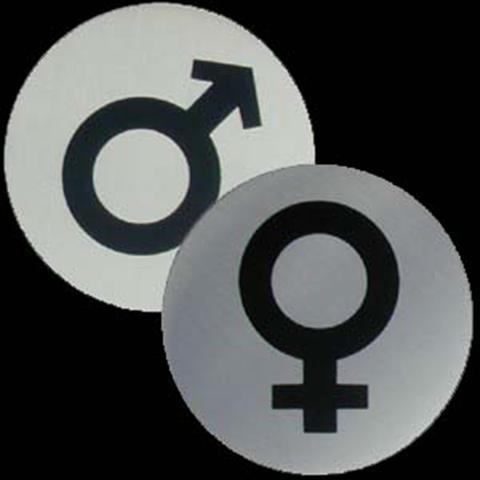
"...it is fatal for any one who writes to think of their sex. It is fatal to be a man or woman pure and simple; one must be woman-manly or man-womanly. It is fatal for a woman to lay the least stress on any grievance; to plead even with justice any cause; in any way to speak consciously as a woman... Some collaboration has to take place in the mind between the woman and the man before the act of creation can be accomplished."
-Virginia Woolf
I would encourage you all to go take this gender quiz from BBC right now. It'll take precisely 22 minutes to complete, but it is worth it! It's very interesting in its descriptions of the traditional characteristics of the male and female mind, and provides some food for thought about Woolf's call for androgyny in her essay "A Room of One's Own." My generational norms class took this quiz, and we discussed the intriguing fact that on average, the variety of responses to the quiz was greater within each sex than it was between the two sexes. Essentially, women are more different from each other than they are from men, and the same goes for men! Yet, in general, men tended to score as slightly more analytically brained than women and women tended to scored as slightly more perceptively brained than men (these qualities being attributed to masculinity and femininity, respectively). Nevertheless, one of my female friends proved to have the completely androgynous brain that Woolf aspires to. On the spectrum of 100% female to 100% male, my brain turned out to be 25% female according to the test. Another male friend scored 50% female, so you just never know what your brain sex might be (surely Woolf would say, "that failing is too rare for one to complain of it").
Some conclusions that the quiz draws about the male and female brains:
"Men tend to pay more attention to space and the geometry of the world around them."
"Women are much better at noticing the details of their environment and spotting changes."
"Women tend to be more sensitive to facial expressions. They are generally better at discerning someone's mood just by looking at their eyes. Studies of children's behaviour have shown that on average girls make more eye contact than boys."
"On average, women use 15,000 words a day while men use 7,000."
At the same time as I can understand Woolf's assertion that the fully developed mind "does not think specially or separately of sex," I wonder how plausible it is for a person to write without gender consciousness. Aren't each of us continually made aware of our gender and how that gender plays an undeniable part in our daily lived experience? How could I forget that I am a woman as I sit down to record my perceptions in writing when I am not accustomed to forgetting that fact? My womanliness shapes every aspect of my being. This is not to say that I do not possess masculine traits and that I cannot, as Woolf suggests, achieve a higher state of consciousness by blending my masculinity and femininity. Yet, how much work would this entail? On what assumptions are we operating when we use the terms "masculine" and "feminine?" Woolf seems to draw one conclusion about the difference when she characterizes masculine writing as more blunt and organized from point to point and feminine writing as more exploratory and meandering in its movement between ideas. It is dangerous ground to start naming certain qualities as exclusively masculine or feminine, for as the gender quiz shows, there are women who left-brained and men who are right-brained. It seems to me that the task that Woolf calls her readers to would prove exhausting in the amount of thinking required to do it. I could picture myself attempting to write with an androgynous voice and stopping to evaluate whether every turn of phrase I create is "masculine" or "feminine." Furthermore, why must the feminine voice in women or the masculine voice in men be suppressed? I, unlike Woolf, am not convinced that gender-conscious writing is fatal.
No comments:
Post a Comment